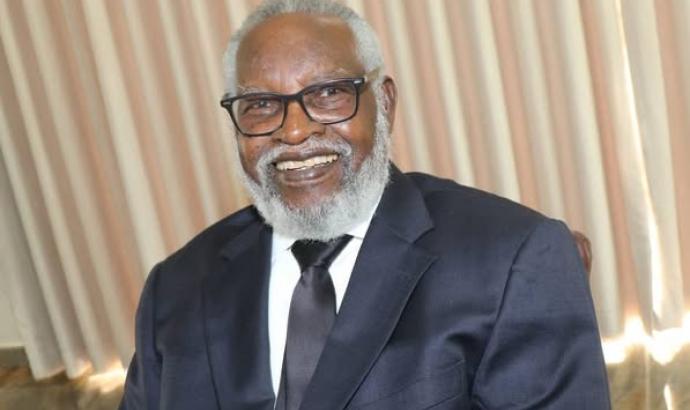Table of Contents
Sam Nujoma, Namibia’s revered independence leader and first president, has passed away at the age of 95. Nujoma, who led the nation’s liberation from apartheid South Africa in 1990, died on Saturday night after a three-week hospitalization in Windhoek, the country’s capital, according to an announcement from the Namibian presidency.
“The foundations of the Republic of Namibia have been shaken,” the presidency stated in a social media post, adding that a period of national mourning has been declared in his honor.
A Legacy of Leadership and Liberation
Nujoma, often hailed as Namibia’s “founding father,” played a pivotal role in steering his country toward democracy and stability after decades of colonial rule under Germany and a protracted independence struggle against South Africa. His leadership placed him among Africa’s most influential liberation figures, alongside Nelson Mandela of South Africa, Robert Mugabe of Zimbabwe, Kenneth Kaunda of Zambia, and Samora Machel of Mozambique.
As the leader of the South West Africa People’s Organisation (SWAPO) since its formation in 1960, Nujoma spearheaded the fight for Namibia’s independence. He remained a dominant political figure long after stepping down from the presidency in 2005, officially retiring from active politics in 2007 at the age of 78.
Many Namibians credit his leadership with fostering national healing and reconciliation in a country divided by war and South Africa’s apartheid-era policies. Even his political adversaries acknowledged his efforts in crafting a democratic constitution and integrating white business leaders and politicians into government after independence.
A Complex Legacy
Despite his achievements, Nujoma’s tenure was not without controversy. His strong anti-Western rhetoric, along with his staunch opposition to homosexuality—calling it a “foreign and corrupt ideology”—and claims that AIDS was a “man-made biological weapon,” drew significant criticism.
Ndumba Kamwanyah, a political analyst and lecturer at the University of Namibia, noted that while Nujoma laid the foundation for Namibia’s independence and governance, his autocratic tendencies cast a shadow over his legacy. “While Nujoma’s presidency was foundational, it was not without flaws,” Kamwanyah observed.
A Life of Struggle and Determination
Born in 1929 in a small village in northwestern Namibia, Nujoma came from humble beginnings. As the eldest of 10 children, he worked as a railway sweeper while attending night school in Windhoek. His political awakening came as a teenager in Walvis Bay, where he lived in a Black township and listened to conversations about the oppression of Black Namibians under white rule.
Under the mentorship of Herero tribal chief Hosea Kutako, he became politically active, eventually leading resistance movements against apartheid policies. In 1960, he went into exile in Botswana, leaving behind his wife and four children. That same year, he was elected SWAPO president and spent decades rallying international support for Namibia’s independence, launching an armed struggle in 1966.
After years of diplomatic negotiations and armed resistance, a United Nations Security Council resolution in 1978 proposed a ceasefire and democratic elections. However, it took another decade before an agreement was reached, leading to Namibia’s first elections in 1989. SWAPO won a decisive victory, and Nujoma was sworn in as the nation’s first president in March 1990.
Post-Presidency and Lasting Influence
Even after leaving office, Nujoma remained a key figure in Namibian politics. He pursued a master’s degree in geology, believing Namibia’s rich natural resources had untapped potential.
In honoring his contributions, the Namibian presidency stated, “Nujoma provided maximum leadership to our nation and spared no effort to motivate each and every Namibian to build a country that would stand tall and proud among the nations of the world.”
Source: Aljazeera


